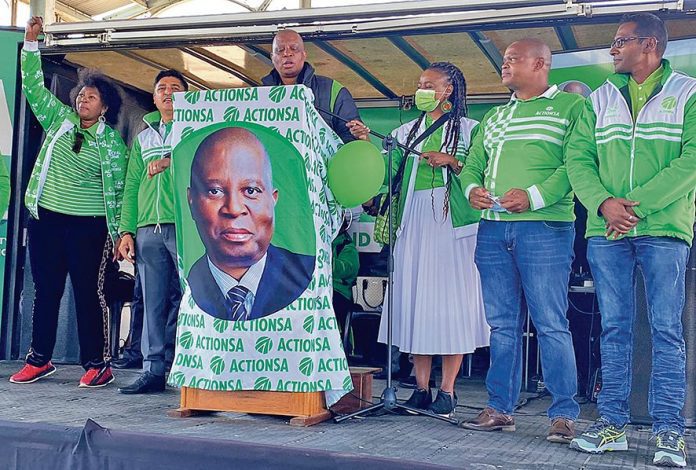Johannesburg – The tell-tale signs of the local economic system will begin to be underlined in metros and municipalities after the November 1 local government elections.
President of ActionSA Herman Mashaba and former Joburg DA mayor has made it clear that his party was committed to a free-market economy in which the private sector must be allowed to play a pivotal role to create wealth for the country.
Mashaba has rebuffed those who were still fixated with the old socialist ideals, which he said had been abandoned even by their architects. “Our administration is committed to working with the private sector to improve the lives of our people.”
However, according to the EFF, South African businesses or the markets should brace themselves for the installation of a socialist-oriented command economy in the event of the Red Berets ascending to political power.
Mashaba insists that “with the unemployment rate escalating and now exceeding 45%, our plan as ActionSA is to take over all the abandoned buildings in the city of Johannesburg and to turn them into residential areas and factories. To achieve this, we plan to involve the private sector.”
He said when he takes over the Johannesburg metro, his administration’s task would be to upgrade the infrastructure and collapse all the unnecessary agencies such as City Power.
He said they would strive to remove unnecessary layers of bureaucracy “thereby saving the city R30-million” in unnecessary and wasteful expenditure. “We have to speed up service delivery so that by the end of our five-year term, the city of Johannesburg will be a highly improved metro, different from a slum that it has become.”
Mashaba said his organisation planned to contest six metros including Joburg, Ekurhuleni, and Tshwane.

The EFF is not moved by criticism of its envisaged command economy that is, by definition, a form of economic system in which “all major enterprises are centrally-controlled, and in which economic activity is initiated by commands and governed by commands emanating from the organisation rather than dictated by market forces”.
Spokesperson for the EFF Vuyani Pambo said “ours will be a state-led economy; the state ought to be the bigger player, and capital must follow the state”.
As it looks ahead to the elections, Pambo said there was no question that the EFF was not willing to negotiate on this, and on all matters related to the state taking full control of the land and all means of production, including the mines.
He said the EFF would ensure that the “rightful owners of the land” derived the full benefits associated with land expropriation and ascertain that African people who had their land “stolen” from them, derive benefits from political action geared towards the restoration of the ancestral land back into their hands.
At municipal and metro levels, Pambo said the EFF would make sure concepts of tendering and outsourcing were anathema, “never to be tolerated by a political formation that prides itself to be people-centred”.
He said it was imperative for the EFF to spell it out without ambiguity that land expropriation without compensation was “a non-negotiable” because if it were to be open to negotiation, African people would never be empowered because land is an asset that must be accompanied by a nationalisation process of all state assets such as mines, as well as the establishment of a state bank without which African people’s emancipation would remain a pipe dream.
“Banks as we know them today do not offer African people loans, and therefore it becomes a necessity that we create a state bank to help uplift our people,” Pambo said.
• Next week Sunday World focuses on the thinking of the DA and ANC leaders as the November 1 municipal elections date approaches.
To read more political news and views from this week’s newspaper, click here.
Follow @SundayWorldZA on Twitter and @sundayworldza on Instagram, or like our Facebook Page, Sunday World, by clicking here for the latest breaking news in South Africa. To Subscribe to Sunday World, click here.
Sunday World




